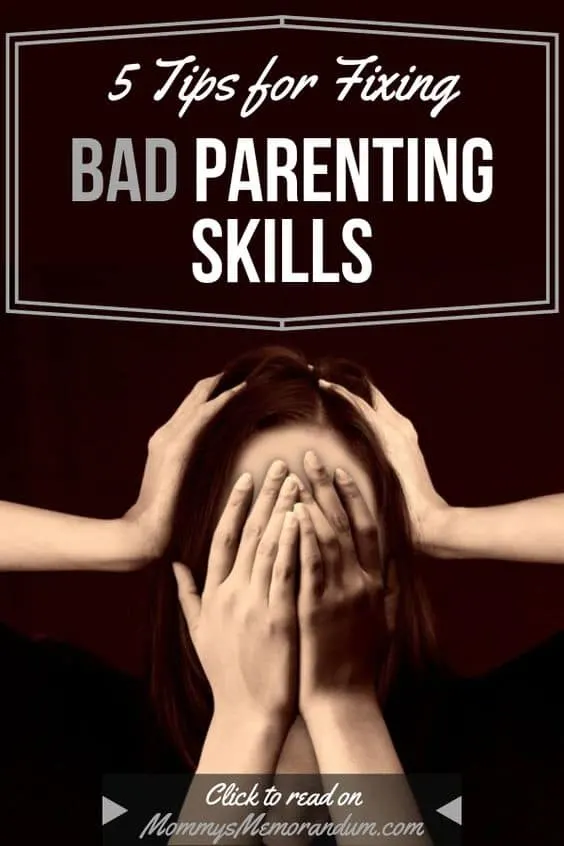Often in our concern for our children, parents make some mistakes and may develop poor parenting skills and habits.
Parenting is a learning experience.
According to Psychology Today, if you care about improving your relationship with your child and your ability to obtain both their love and respect, you should follow these 5 tips for fixing bad parenting skills and regaining control over the special relationship you can have with your child.

5 Tips for Fixing Bad Parenting Skills
-
First, don’t always expect the worst.
Teenagers especially have developed a bad reputation.
Unfortunately, many kids do get involved with things like drugs, sex, or alcohol. However, this does not mean you should automatically accuse or suspect your child of doing the same.
Bad parents often jump on their kids, causing the child to close off and avoid talking about issues with their parents.
Suspicious, paranoid parents may become overly strict, hoping to shield their child from dangers instead of allowing them to make good choices on their own, or mess up and make their own mistakes.
Instead, be aware and observant, but don’t point the finger or judge your child’s actions. Instead, open up a dialogue if you are concerned about your son or daughter’s decisions or safety.
Refrain from judging them and explain that you wish to simply understand and find a way to help them through any troubling times in their life.
-
Avoid reading too many parenting books and guides.
While these can sometimes be informative or may give you some helpful tips and advice, they may not apply to your situation.
Every parent-child relationship is different, and your child is unique as well.
Instead of blindly following what a book says verbatim, trust your own instincts and judgment.
Some parents use books as a crutch or as a way to justify their actions as a parent. However, books are not a cure-all solution and are not guaranteed to work in every situation.
Use books to enhance or expand your perspective, but not to solve all of your problems.
-
Don’t ignore the big issues, but also don’t freak out about smaller issues.
First, many parents with poor parenting skills prefer to avoid discussing serious problems with their kids, hoping the issue will go away if there is no confrontation, says Common Sense Media.
Some parents find it easier to look the other way, saying their kid’s actions are probably just a “phase” or an experiment. While this may be true, you still need to be actively involved once you know of serious issues such as bullying or substance abuse.
Your child needs to know what is or is not okay and, more importantly, that they have someone looking out for them who cares about their safety and well-being.
-
There is also another side to this coin.
Being involved does not mean you should crack down on your child for every mistake they make or decision that you disapprove of.
Keep things in perspective and see the bigger picture. Don’t you like that your daughter dyed her hair a bright color? That’s okay, but as long as your child is safe, you should allow him or her to make some of these decisions on their own.
Often parents like to intervene to help spare their child any discomfort or teasing that may come with decisions such as dying hair.
However, you cannot protect them from everything, and they will have to learn some experiences independently. Just make sure your kids know you are there for them if things do become serious or something that is not age-appropriate develops.
-
Find a balance between too much and too little control over your children.
Being overly strict may temporarily help to protect your child at first, but eventually, they may end up resenting you for not allowing them to live their lives or make their own decisions and choices.
In the same respect, too little discipline or structure gives kids too much freedom, so they may abuse it and push the limits, endangering themselves and others.
A happy medium should be established over time so that your child knows that there are rules and restrictions but that they also have some influence over their lives and decisions.
Parenting is absolutely not an easy job.
We do our best to be an amazing parent. Instead of calling a parenting fail hotline or resorting to a parenting book like it’s the Bible, you need to trust your own abilities and judgments if you expect your children to respect or trust you.
It requires patience and a lot of experimentation until you can find a healthy, productive balance.
Applying these tips to your parenting strategy can help you become a better parent to help your child the best you can while they grow up and explore the world.
